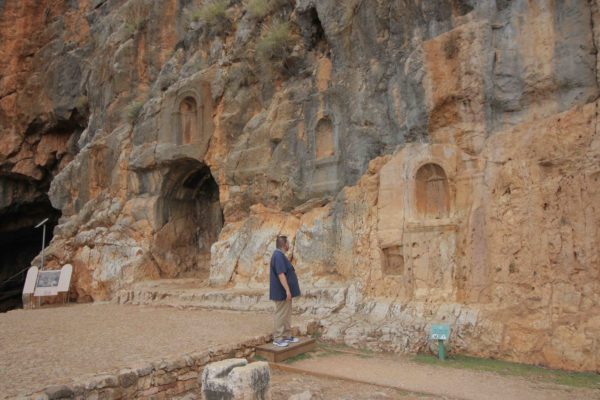“Who do you say that I am?” 16:15
One of the most important questions Jesus asked his disciples is found in Matthew’s Gospel. While at Caesarea Philippi Jesus gathered his disciples and asked, “Who do you say that I am?” It was an intentional question that demanded a thoughtful answer. It was a challenging question that forced the disciples to give a personal answer that came from deep personal reflection.
Caesarea Philippi is located in the northern part of modern day Israel. It has been home to many cultures, including the Greeks under Alexander the Great. Even today, you can see the many religious ruins of several cultures. Jesus and his disciples were gathered before these ruins that depicted gods and rituals from different cultures and various times. When Jesus asked, “Who do you say that I am?” it was a question designed to have the disciples reflect on Jesus in light of the images of other deities, other sources of religious and political power.
As modern-day disciples, we are called to answer this same question. Who is Jesus? What does Jesus mean to us and to the world? How we answer this question determines how we act and react to the world around us. Peter and the disciples recognized that Jesus was, “…the messiah, the son of the living God.” (16:16) They saw that Jesus was standing before them and before the symbols of the powers of the world and Jesus was greater. The disciples recognized that Jesus represented something far greater and different than anything before them at Caesarea Philippi. He was the Living God, not an ancient ruin. He was the gift of God’s love.
After Peter and the disciples stated who Jesus was and made their declaration of belief, Jesus stated that his church would be built with them. It would be a living church of love, far greater than the ancient ruins.
Who do you say that Jesus is today? What are you called to do in light of your belief? Like the first disciples, we must wrestle with this question so that our faith becomes an active force of love in this world.
Rev. Keith King, Online Campus Pastor



